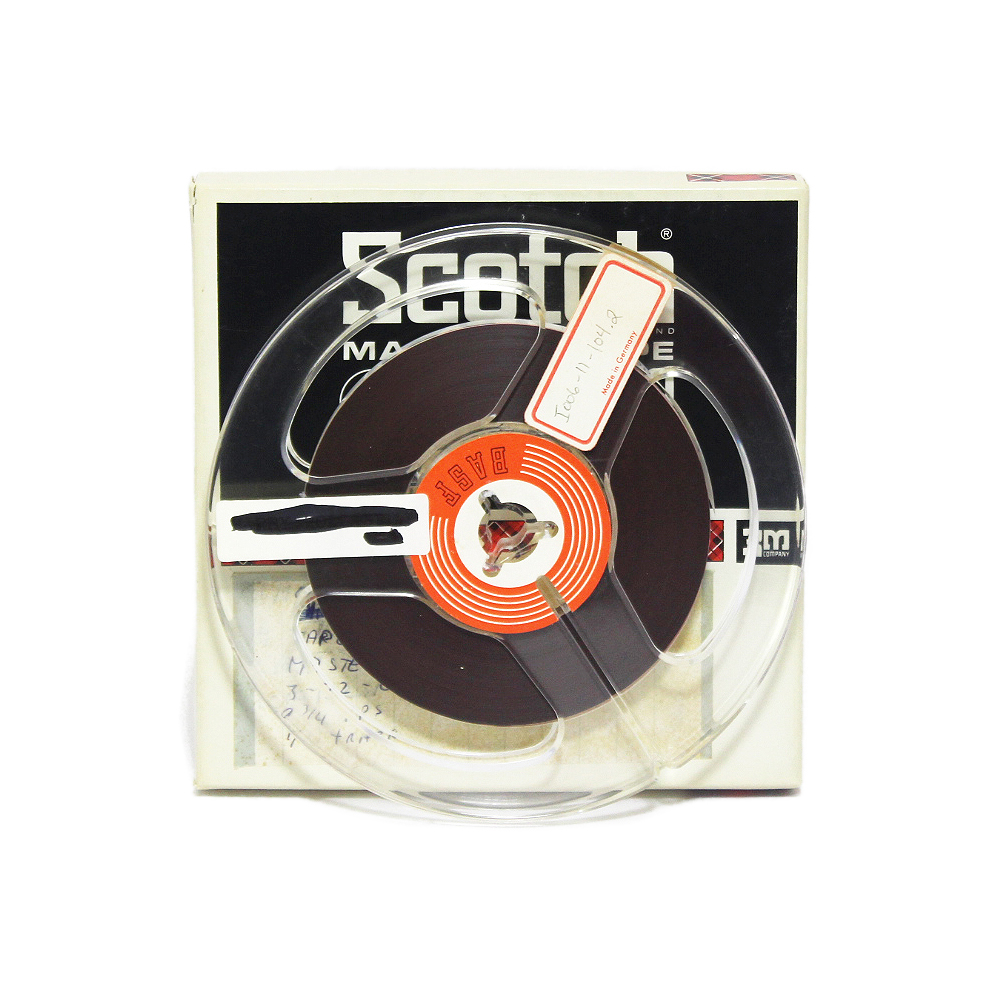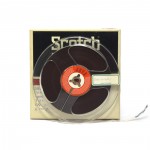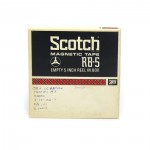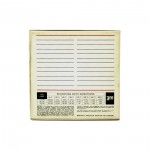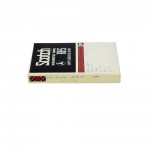Christopher Levenson at SGWU, 1972, Part 1
Introducer
00:00:00.00
About seven years ago, our lives intersected for about two years at the University of Iowa, where Christopher, along with two or three other poets suddenly arrived, in that middle state in the United States, with not just English accents, but a whole body of literatures and languages behind them. Christopher was not just in the poetry workshop, but was doing a lot of translations from German and Dutch, writing his own poetry, was a kind of formidable character with these obscure languages, at least obscure to me at the time. He has since come on, after doing his PhD to Carleton where he is an Assistant Professor of English, his third book of poems, Stills is being published in the next few weeks by Chatto and Windus, and should be looked for at your bookstores. He's asked for it to come but it hasn't arrived yet. So without any further [inaudible], Christopher Levenson. [Sort out microphone]
Christopher Levenson
00:01:54.27
Good Evening. Trying to decide what I'm going to read this evening, presents the same sort of problems that it always does, when one's being asked to divide oneself up into certain sections, decide which poems you like best, and you know, you love them all, and don't want to make any choices. And to find some headings, some pigeon holes. Well, I'm not very good at this, but I'll start off with a few poems about United States, about Canada, starting off with places, and then move on to some slightly more personal ones, before the interval. Alright, the first poem I want to read is called "Modus Vivendi", which, it sounds a bit affected, having a foreign language titles, but I felt this said a little bit more than simply 'way of life' because ‘modus vivendi’ implies something very transitory, and that was one of the aspects of my first impressions at least of American life, that struck me very forcibly, this really came out of my very first day in the States, traveling from New York to Chicago by train.
Annotation
00:03:42.86
Reads "Modus Vivendi".
Christopher Levenson
00:05:20.49
Then, a poem that will be in stills called "Metropolis". Well I think this is self-explanatory, and in fact one of reasons why I like reading aloud, is because a fair number of my poems are self-explanatory and don't have to say too much about them. So I won't. "Metropolis".
Annotation
00:05:49.94
Reads "Metropolis".
Christopher Levenson
00:06:57.77
That, I suppose, really brands me as- emotionally speaking, as a European, because it's different here in Montreal, I've not been to Quebec yet, it's different in one or two places, but on the whole, you know, I find myself looking in vain for this sense of a center. Now a poem that I wrote not too long ago in Ottawa. Called "Office", it's a shorter one. Sort this out a bit. Last time I gave a reading, somebody knocked water all over it. Here we go.
Annotation
00:07:54.96
Reads "Office".
Christopher Levenson
00:08:15.58
And then one which is my main claim so far, I suppose, to writing a Canadian poem, "Horse Sleigh", certainly it's not one that I could have written any where else. One of the kids is at nursery school and they take them out each winter on a horse sleigh ride, and I went along. So of course it's not really about a horse sleigh. One word- half way through, the word 'revenence' these are ghosts that come back to their own- literally, their old haunts. And can't seem to keep away from the place. "Horse Sleigh".
Annotation
00:09:07.69
Reads "Horse Sleigh".
Christopher Levenson
00:09:57.38
Then, another poem, based pretty obviously I think on personal experience, in the States. It's called "A Bad Trip", not mine, some body else's, but this would be, this I felt was sort of enough to keep me off it. Anyway, "A Bad Trip".
Annotation
00:10:34.63
Reads "A Bad Trip".
Christopher Levenson
00:12:26.81
Then, one which came a long, long time after I was actually told of this incident by my wife in fact, and it must be something like 1956, actually it happened, a carnival referred to is a German carnival, and I guess things have changed quite a bit since then. "Song of the Unmarried Mother".
Annotation
00:13:00.47
Reads "Song of the Unmarried Mother".
Christopher Levenson
00:14:28.06
Then maybe have a little bit of pseudo light relief before we go on. "Ballad of the Psychoanalyst". Which is another, sort of relic, but again not a personal one, this started off as a fine number of my poems do from things people say to me. The first two lines here, "They took me across the river, they laid me up the hill", were almost exactly what somebody said. And I took it from there. Alright, "The Ballad of the Psychoanalyst".
Annotation
00:15:07.09
Reads "The Ballad of the Psychoanalyst".
Christopher Levenson
00:16:54.88
And, I'll read a couple more, sort of more personal ones, I guess. Well, this isn't really, this poem called "Old Friend".
Annotation
00:17:16.34
Reads "Old Friend".
Christopher Levenson
00:19:11.38
And, "Maps". I've always been fascinated by maps and I find looking through my poems, certain images keep on recurring. One of them is that of maps, another one, as maybe you'll see later, is of stones, [inaudible] and so on. And what I'm referring to in the first section here are these old maps where great chunks have come true and not known and so they just put in a zephyr, a wind, you know, or a dragon, or a dolphin or something like that to make up for their ignorance. "Maps".
Annotation
00:19:58.91
Reads "Maps".
Christopher Levenson
00:21:29.56
Then, a thing in this first part, I'll just read. One found poem, and then two excerpts from a sort of longer work in process. The found poem, I dedicate to Howard and Marty [?] Fink because that's where I found it. It's called the "Bowfoot Scale". The bowfoot scale is simply an explanation in terms of miles per hour, I've left that column out, and in terms of symptoms so to speak of these words that you hear on the weather reports, calm, slight breeze and so forth. "Bowfoot Scale".
Annotation
00:22:21.30
Reads "Bowfoot Scale".
Christopher Levenson
00:23:31.22
[laughs] I dare say it's a found poem, it's not really mind. I get a lot of fun out of finding poems. Now these next two excerpts are from a poem which is tentatively entitled, "Hopkins in Piccadilly", it won't be called that in the end, it's just, it started off thinking what Gerald Manley Hopkins would think of contemporary London, but it soon left that idea behind and what it's going to be now is a poem in several sections about various aspects of London. Trying to use as many words in my poems that I don't normally use in poems, you know, or that one does not normally see used in poems, and so a lot of, words which are not normally part of my poetic vocabulary. I'm not trying to be arch or archaic or anything like that, simply to expand my vocabulary and hope to therefore I can say new things. Now the two that I've got semi finished, or at least enough to read, one's called "Charing Cross Road", if you know London, England, you'll know that this is the road in which you find both some very good book shops and a lot of very sleazy so called hygienic stores, and it's this aspect I'm concentrating on there, and then the second one is on Hyde Park, with the idea of the public speakers and the orators. "Charing Cross Road" then.
Annotation
00:25:25.84
Reads "Charing Cross Road".
Christopher Levenson
00:26:34.58
That's as far as I've got with that bit so far. The next one, "Hyde Park", the Hyde Park Speaker's Corner is what I'm thinking of particularly.
Annotation
00:26:47.19
Reads "Hyde Park".
Christopher Levenson
00:28:41.41
It's not really supposed to follow quite on from that, but a little bit later. "But still at least we have our language..."
Annotation
00:28:48.70
Reads first line (continues from "Hyde Park") "But still at least we have our language..."
Christopher Levenson
00:29:08.45
That's as far as I've got with that section too for the moment. And I believe the custom is, sometimes at least, here to have a sort of five or ten minute break and then we will have about another twenty minutes afterwards, if that's alright with you.
Christopher Levenson
00:30:23.95
I'll read a few so called political poems, they're not really political in the normal sense, not sort of party political or anything like that, simply concerned about relationships between people in the community or sort of national attitudes, that sort of thing, more than specific political issues. Although this first one that I'm going to read, "Terrorist", comes, I think, fairly obviously from a particular situation, with which you here are particularly well acquainted. I was thinking, particularly of the FLQ crisis, but it could apply to any terrorist.
Annotation
00:31:31.59
Reads "Terrorist".
Christopher Levenson
00:32:35.33
I suppose if I have a recurring theme in these quasi-political poems, it is that, the tyranny of the ideal if you like, the way in which we force things to become what we want them to become. Force ourselves to see things so that they fit into our pre-selected beliefs. Alright, a rather different sort of poem called "The Facts of Life". This too will be in the book.
Annotation
00:33:13.57
Reads "The Facts of Life".
Annotation
00:35:25.57
END OF RECORDING.
